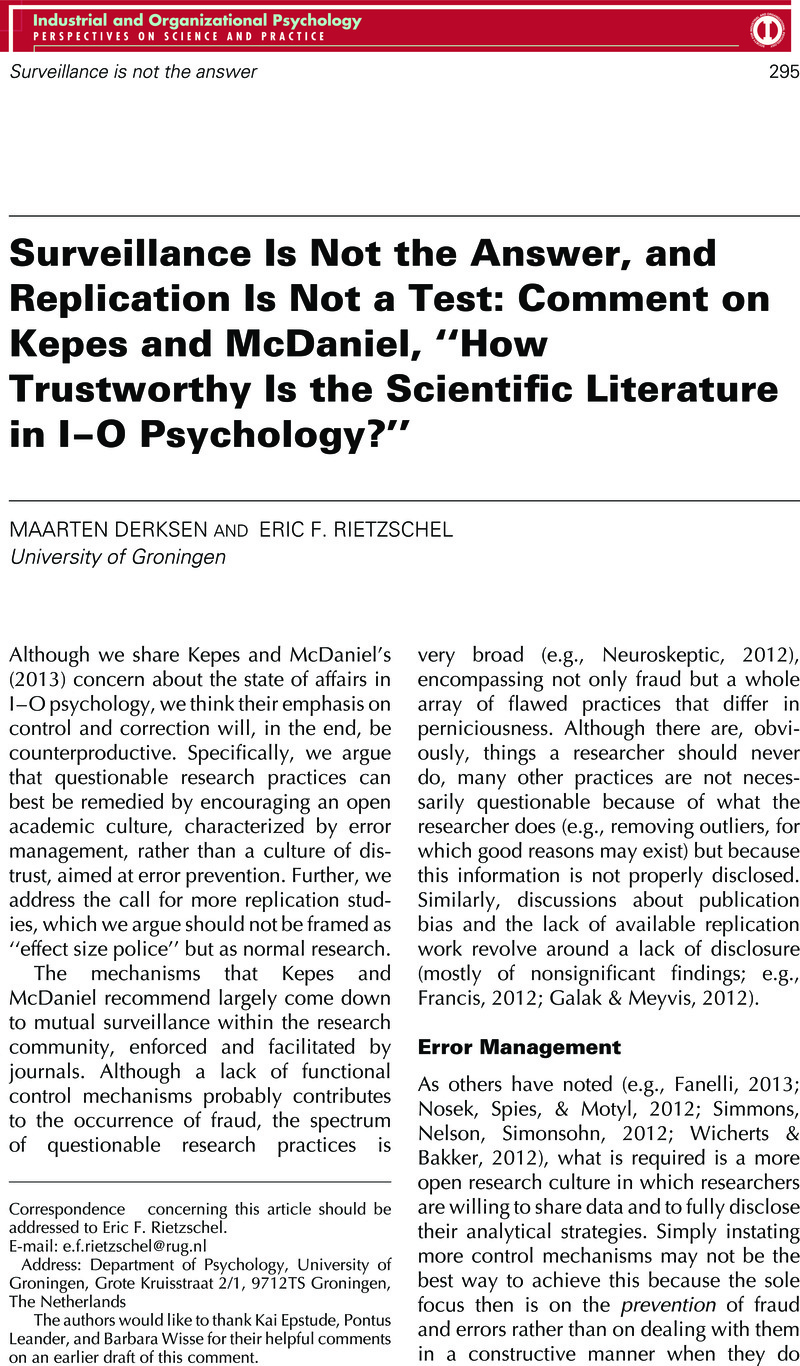Crossref Citations
This article has been cited by the following publications. This list is generated based on data provided by Crossref.
Broom, D. P.
and
Hirscher, M.
2016.
Irreproducibility in hydrogen storage material research.
Energy & Environmental Science,
Vol. 9,
Issue. 11,
p.
3368.
Kepes, Sven
List, Sheila K.
and
McDaniel, Michael A.
2018.
Enough Talk, It's Time to Transform: A Call for Editorial Leadership for a Robust Science.
Industrial and Organizational Psychology,
Vol. 11,
Issue. 1,
p.
43.
Banks, George C.
Field, James G.
Oswald, Frederick L.
O’Boyle, Ernest H.
Landis, Ronald S.
Rupp, Deborah E.
and
Rogelberg, Steven G.
2019.
Answers to 18 Questions About Open Science Practices.
Journal of Business and Psychology,
Vol. 34,
Issue. 3,
p.
257.
Penders
Holbrook
and
de Rijcke
2019.
Rinse and Repeat: Understanding the Value of Replication across Different Ways of Knowing.
Publications,
Vol. 7,
Issue. 3,
p.
52.
Brenninkmeijer, Jonna
Derksen, Maarten
Rietzschel, Eric
Vazire, Simine
and
Nuijten, Michèle
2019.
Informal Laboratory Practices in Psychology.
Collabra: Psychology,
Vol. 5,
Issue. 1,
Дем’яненко, В. М.
Мар’єнко, М. В.
Носенко, Ю. Г.
Семеріков, С. О.
and
Шишкіна, М. П.
2020.
Адаптивна хмаро орієнтована система навчання та професійного розвитку вчителів закладів загальної середньої освіти.
Derksen, Maarten
and
Field, Sarahanne
2022.
The Tone Debate: Knowledge, Self, and Social Order.
Review of General Psychology,
Vol. 26,
Issue. 2,
p.
172.
Grolleau, Gilles
and
Mzoughi, Naoufel
2022.
How research institutions can make the best of scandals – once they become unavoidable.
Prometheus,
Vol. 38,
Issue. 3,





